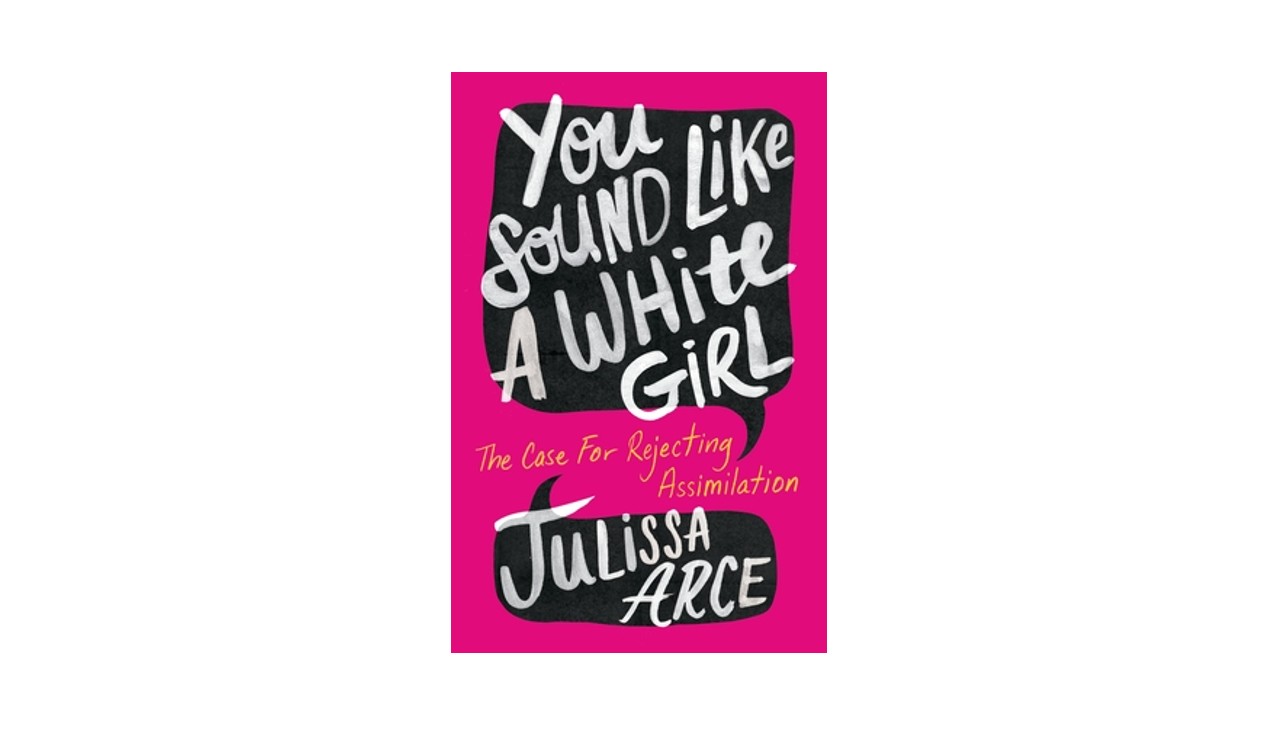
Does assimilation really lead to belonging?
In 'You Sound Like a White Girl,' Latina author Julissa Arce says that belonging only comes through celebrating yourself, your history, and your culture.
Julissa Arce was born in Guerrero, Mexico, but when her parents migrated to the United States for work, she was moving constantly with a travel visa between her parents' home in San Antonio, Texas, and her grandmother's home in Mexico. At age 14, she remained in the U.S, becoming undocumented. Arce remained undocumented for nearly 15 years, but was able to attend college (she got a degree in finance from the University of Texas, Austin) through the Texas DREAM act, and led a successful career as a banker, businesswoman and speaker. However, she never forgot her immigrant experience and how difficult it became for her to assimilate, so she found a reason to start a parallel career as a writer.
Arce is the author of bestselling books My (Underground) American Dream (2016), and Someone Like Me (2018), both about her immigrant experience. Her most recent book is You Sound Like a White Girl, in which she combs through history and her own story to break down the myth that assimilation leads to belonging.
As a Brown immigrant from Mexico, assimilation had been demanded of her since the moment she set foot in San Antonio, Texas, in 1994. She’d spent so much time getting rid of her accent so no one could tell English was her second language. In that moment she felt those words — you sound like a white girl — were a compliment. As a child, she didn’t yet understand that assimilating to “American” culture really meant imitating “white” America — that sounding like a white girl was a racist idea meant to tame her, change her, and make her small. She ran the race, completing each stage, but never quite fit in, until she stopped running altogether.
RELATED CONTENT
“Americanizing was supposed to help me fit in,” she writes. “But even after I learned English, became a citizen, got my coins, I still wasn’t welcomed. In fact the opposite was true. . . I became a Frankenstein collecting the pieces I’d lost along the way—my language, my culture, my family.”
In You Sound Like a White Girl, Arce argues that assimilation is a moving finish line designed to keep Black and Brown Americans and immigrants chasing racist American ideals. Instead, she offers a bold new promise: Belonging only comes through celebrating yourself, your history, your culture, and everything that makes you uniquely you. Only in turning away from the white gaze can we truly make America beautiful. An America where difference is celebrated, heritage is shared and embraced, and belonging is for everyone. Through unearthing veiled history and reclaiming her own identity, Julissa shows us how to do this.
About the author
Arce was named one of People en Español’s 25 Most Powerful Women of 2017 and Woman of the Year by the City of Los Angeles in 2022 and 2019. She is a leading voice in the fight for social justice, immigrant rights and education equality. Julissa has contributed to The New York Times, TIME, Buzzfeed News, Crooked Media, CNBC, and is one of the hosts of Crooked Conversations. She has provided political commentary across numerous TV networks including NBC News, Bloomberg TV, CNN, and MSNBC.
To help other young people in similar circumstances, Julissa co-founded the Ascend Educational Fund (AEF). AEF is a college scholarship and mentorship program for immigrant students in New York City, regardless of their ethnicity, national original or immigration status. She also serves on the board of directors of the National Immigration Law Center. She was officially sworn in as an American citizen in August of 2014.
{"preview_thumbnail":"/sites/default/files/styles/video_embed_wysiwyg_preview/public/video_thumbnails/piE3Uz9-r10.jpg?itok=orrWkoH5","video_url":"https://youtu.be/piE3Uz9-r10","settings":{"responsive":1,"width":"854","height":"480","autoplay":1},"settings_summary":["Embedded Video (Responsive, autoplaying)."]}












LEAVE A COMMENT: